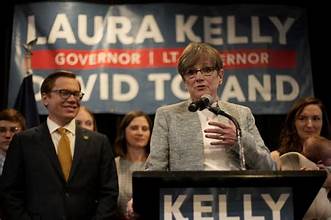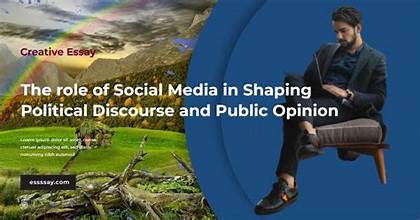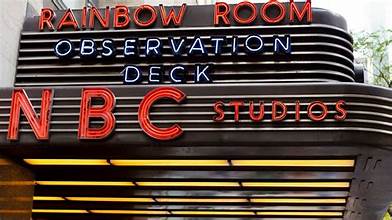Kelly Bates Asks Supporters Not to Take Out Their Anger on NBC 10: A Call for Understanding
In a world where the media is often criticized, it is not uncommon for public figures to become the target of public anger, especially when the media plays a role in the controversy. Recently, Kelly Bates, a well-known figure, made an important public statement asking her supporters to refrain from directing their anger at NBC 10, following a contentious situation. Her message was clear: channeling frustration towards the network would not solve anything. Instead, Kelly Bates Asks Supporters Not to Take Out Their Anger on NBC 10 she urged her followers to consider more constructive ways to address their concerns.
The situation in question involves a series of events that left Kelly Bates’ supporters upset, but Bates’ response has sparked significant conversations about how individuals should handle conflict with the media and public organizations. In this article, we will explore why Kelly Bates felt compelled to make this statement and the implications of her message on media relations and public discourse.
Table of Contents
Kelly Bates Asks Supporters Not to Take Out Their Anger on NBC 10: The Context Behind the Statement
To understand why Kelly Bates’ message was so important, it is essential to first look at the context that led to her plea. Kelly Bates, who has gained a significant following in the media, found herself at the center of controversy after a report aired on NBC 10. The news segment was critical of her actions or comments, depending on one’s perspective, and that stirred strong reactions from her supporters.
Supporters of public figures often feel protective and defensive when they perceive their idols or mentors being unfairly attacked by the media. In this case, many of Bates’ supporters believed that the network misrepresented her or failed to accurately depict the full context of a situation. As a result, they were quick to express their anger, directing harsh criticism toward NBC 10.
The Role of Social Media in Amplifying Anger
The advent of social media has brought about a shift in how public figures and organizations interact with the public. While these platforms provide a space for people to voice their opinions and frustrations, they also serve as a battleground for heated exchanges. In this case, social media played a pivotal role in amplifying the anger directed toward NBC 10.
Kelly Bates’ supporters took to platforms like Twitter, Instagram, and Facebook to share their frustrations with the network. The intensity of the reactions was palpable, with many individuals using their platforms to call for accountability and demand that NBC 10 issue a public apology. The situation escalated quickly, and Bates knew that if left unchecked, the situation could damage the relationship between her supporters and the media.
Kelly Bates’ Response: A Call for Civility

In response to the growing online outrage, Kelly Bates stepped in with a public statement urging her supporters to reconsider their actions. Her message was simple but powerful: Kelly Bates asks supporters not to take out their anger on NBC 10, reminding them that the network was not the source of the issue, but rather a part of a larger narrative. By directing their anger toward the media, Bates warned that they risked losing sight of the real problem and becoming part of a destructive cycle.
Bates’ plea was a call for civility and understanding. She explained that the network, while it may have made mistakes or misrepresented her, was simply doing its job, and that addressing these issues with respect and dialogue was more productive than resorting to anger and hostility. She encouraged her supporters to channel their energy toward more positive forms of advocacy, like engaging with the network’s management directly or supporting organizations that promote fairness in media.
The Impact of Media Misrepresentation and Public Backlash
Media misrepresentation is a serious issue, especially for public figures who rely on their image and reputation for their career. Whether it’s through selective editing, biased reporting, or sensationalized headlines, the media has the power to shape public opinion, and often, not in the way individuals or groups would like.
When Kelly Bates’ supporters believed that NBC 10 had misrepresented her, they felt the need to fight back. The resulting backlash, while understandable in many ways, only further highlighted the challenges of managing a public image in an age where media coverage can go viral in seconds. The rapid spread of information and opinions on social media can create a snowball effect that is difficult to control.
However, by publicly addressing the situation and asking her supporters not to take their anger out on NBC 10, Kelly Bates demonstrated a level of maturity and wisdom that is rare in such high-stakes situations. Instead of encouraging retaliation, she chose to promote a more measured and thoughtful response.
The Power of Direct Communication
One of the key aspects of Kelly Bates’ message was her emphasis on direct communication. Rather than letting frustration fester or allowing the narrative to be shaped by those outside of her control, Bates used her platform to speak directly to her supporters. By doing so, she not only showed leadership but also set a precedent for how public figures can effectively manage situations of public backlash.
In this age of social media, direct communication is more important than ever. Public figures who engage with their supporters in a meaningful way can help prevent misunderstandings and reduce the likelihood of negative campaigns that can spiral out of control. Bates’ approach serves as a model for how individuals in the public eye can use their influence to steer conversations in a positive direction.
Understanding the Media’s Role in Public Discourse

In her statement, Kelly Bates Asks Supporters Not to Take Out Their Anger on NBC 10 as an adversary but rather as a part of the broader media landscape. While she acknowledged that the network may have made mistakes in their coverage of her, Bates recognized the important role that the media plays in shaping public discourse. The media, she argued, has a responsibility to report accurately, but it also has a responsibility to engage with the public in a way that is fair and respectful.
By framing her response in this way, Kelly Bates not only called for a more constructive relationship between public figures and the media, but she also helped her supporters better understand the complexities of media coverage. This understanding could help prevent future misunderstandings and foster more productive conversations between the public and the press.
The Broader Implications of Kelly Bates’ Message
Kelly Bates’ call for calm and understanding has broader implications for how we interact with the media and each other in times of conflict. In a world where information spreads rapidly, and emotions often run high, it is easy to fall into the trap of reacting impulsively. However, Bates’ response shows that it is possible to take a step back, assess the situation rationally, and encourage others to do the same.
Her message also underscores the importance of empathy and respect in public discourse. Whether dealing with the media, supporters, or critics, showing understanding and promoting respectful dialogue can help bridge divides and foster a more civil society. Kelly Bates’ example serves as a reminder that, in moments of anger and frustration, there is always an opportunity to choose a more thoughtful path forward.
Also read gomyfinance.com Credit Score: Understanding Your Credit Health
Conclusion: Kelly Bates Asks Supporters Not to Take Out Their Anger on NBC 10
In conclusion, Kelly Bates’ message to her supporters was a powerful reminder of the importance of managing conflict in a constructive manner. By urging her followers not to direct their anger at NBC 10, she demonstrated leadership, empathy, and maturity. In doing so, she not only protected her own reputation but also set an example for how public figures can handle controversy in a way that promotes positive change.
Kelly Bates asks supporters not to take out their anger on NBC 10 because she understands the destructive nature of anger when directed at the wrong target. Instead of fueling the fire of conflict, she chose to model the type of behavior that can lead to productive dialogue and understanding. This moment serves as an important lesson for both public figures and their supporters in how to approach media criticism and the inevitable challenges of being in the public eye.
Through her thoughtful approach, Kelly Bates has proven that navigating the complexities of media relationships and public backlash can be done with grace, intelligence, and a focus on what truly matters: fostering a respectful and constructive environment for all involved.


